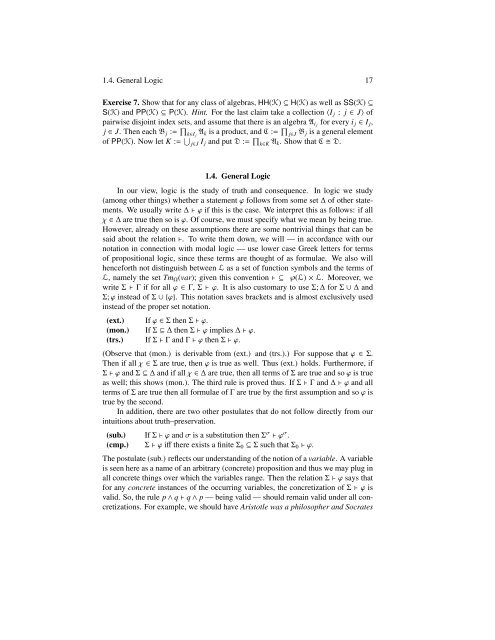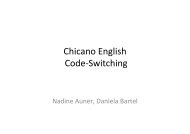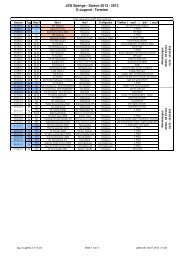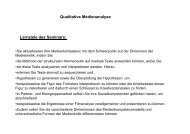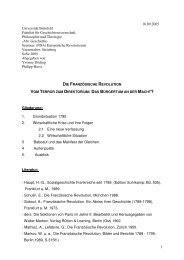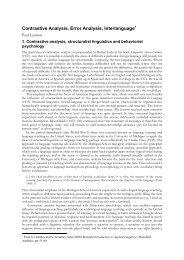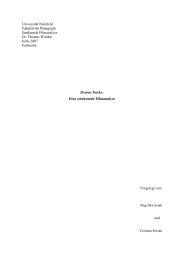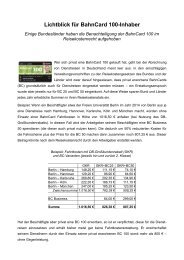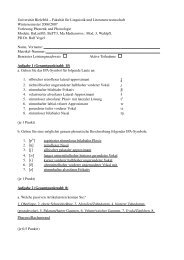- Page 1: Tools and Techniques in Modal Logic
- Page 4 and 5: vi About this book the book [43] ha
- Page 6 and 7: viii Overview proved in full genera
- Page 8 and 9: x Overview used by Lilia Chagrova [
- Page 10 and 11: xii Contents 3.7. Interpolation and
- Page 13: Part 1 The Fundamentals
- Page 16 and 17: 4 1. Algebra, Logic and Deduction O
- Page 18 and 19: 6 1. Algebra, Logic and Deduction A
- Page 20 and 21: 8 1. Algebra, Logic and Deduction b
- Page 22 and 23: 10 1. Algebra, Logic and Deduction
- Page 24 and 25: 12 1. Algebra, Logic and Deduction
- Page 26 and 27: 14 1. Algebra, Logic and Deduction
- Page 30 and 31: 18 1. Algebra, Logic and Deduction
- Page 32 and 33: 20 1. Algebra, Logic and Deduction
- Page 34 and 35: 22 1. Algebra, Logic and Deduction
- Page 36 and 37: 24 1. Algebra, Logic and Deduction
- Page 38 and 39: 26 1. Algebra, Logic and Deduction
- Page 40 and 41: 28 1. Algebra, Logic and Deduction
- Page 42 and 43: 30 1. Algebra, Logic and Deduction
- Page 44 and 45: 32 1. Algebra, Logic and Deduction
- Page 46 and 47: 34 1. Algebra, Logic and Deduction
- Page 48 and 49: 36 1. Algebra, Logic and Deduction
- Page 50 and 51: 38 1. Algebra, Logic and Deduction
- Page 52 and 53: 40 1. Algebra, Logic and Deduction
- Page 54 and 55: 42 1. Algebra, Logic and Deduction
- Page 57 and 58: CHAPTER 2 Fundamentals of Modal Log
- Page 59 and 60: 2.1. Syntax of Modal Logics 47 (cl
- Page 61 and 62: 2.1. Syntax of Modal Logics 49 an o
- Page 63 and 64: 2.1. Syntax of Modal Logics 51 Howe
- Page 65 and 66: 2.2. Modal Algebras 53 for some non
- Page 67 and 68: 2.2. Modal Algebras 55 particular,
- Page 69 and 70: 2.3. Kripke-Frames and Frames 57 Fi
- Page 71 and 72: 2.3. Kripke-Frames and Frames 59 re
- Page 73 and 74: 2.3. Kripke-Frames and Frames 61 Fi
- Page 75 and 76: 2.4. Frame Constructions I 63 verif
- Page 77 and 78: 2.4. Frame Constructions I 65 A val
- Page 79 and 80:
2.4. Frame Constructions I 67 Put [
- Page 81 and 82:
2.5. Some Important Modal Logics 69
- Page 83 and 84:
2.5. Some Important Modal Logics 71
- Page 85 and 86:
2.6. Decidability and Finite Model
- Page 87 and 88:
2.6. Decidability and Finite Model
- Page 89 and 90:
2.6. Decidability and Finite Model
- Page 91 and 92:
2.7. Normal Forms 79 Proposition 2.
- Page 93 and 94:
2.7. Normal Forms 81 formula of the
- Page 95 and 96:
2.7. Normal Forms 83 J and P are de
- Page 97 and 98:
2.7. Normal Forms 85 obtained as fo
- Page 99 and 100:
2.8. The Lindenbaum-Tarski Construc
- Page 101 and 102:
2.8. The Lindenbaum-Tarski Construc
- Page 103 and 104:
2.8. The Lindenbaum-Tarski Construc
- Page 105 and 106:
2.9. The Lattices of Normal and Qua
- Page 107 and 108:
2.9. The Lattices of Normal and Qua
- Page 109:
2.9. The Lattices of Normal and Qua
- Page 112 and 113:
100 3. Fundamentals of Modal Logic
- Page 114 and 115:
102 3. Fundamentals of Modal Logic
- Page 116 and 117:
104 3. Fundamentals of Modal Logic
- Page 118 and 119:
106 3. Fundamentals of Modal Logic
- Page 120 and 121:
108 3. Fundamentals of Modal Logic
- Page 122 and 123:
110 3. Fundamentals of Modal Logic
- Page 124 and 125:
112 3. Fundamentals of Modal Logic
- Page 126 and 127:
114 3. Fundamentals of Modal Logic
- Page 128 and 129:
116 3. Fundamentals of Modal Logic
- Page 130 and 131:
118 3. Fundamentals of Modal Logic
- Page 132 and 133:
120 3. Fundamentals of Modal Logic
- Page 134 and 135:
122 3. Fundamentals of Modal Logic
- Page 136 and 137:
124 3. Fundamentals of Modal Logic
- Page 138 and 139:
126 3. Fundamentals of Modal Logic
- Page 140 and 141:
128 3. Fundamentals of Modal Logic
- Page 142 and 143:
130 3. Fundamentals of Modal Logic
- Page 144 and 145:
132 3. Fundamentals of Modal Logic
- Page 146 and 147:
134 3. Fundamentals of Modal Logic
- Page 148 and 149:
136 3. Fundamentals of Modal Logic
- Page 150 and 151:
138 3. Fundamentals of Modal Logic
- Page 152 and 153:
140 3. Fundamentals of Modal Logic
- Page 154 and 155:
142 3. Fundamentals of Modal Logic
- Page 156 and 157:
144 3. Fundamentals of Modal Logic
- Page 158 and 159:
146 3. Fundamentals of Modal Logic
- Page 160 and 161:
148 3. Fundamentals of Modal Logic
- Page 162 and 163:
150 3. Fundamentals of Modal Logic
- Page 164 and 165:
152 3. Fundamentals of Modal Logic
- Page 166 and 167:
154 3. Fundamentals of Modal Logic
- Page 169:
Part 2 The General Theory of Modal
- Page 172 and 173:
160 4. Universal Algebra and Dualit
- Page 174 and 175:
162 4. Universal Algebra and Dualit
- Page 176 and 177:
164 4. Universal Algebra and Dualit
- Page 178 and 179:
166 4. Universal Algebra and Dualit
- Page 180 and 181:
168 4. Universal Algebra and Dualit
- Page 182 and 183:
170 4. Universal Algebra and Dualit
- Page 184 and 185:
172 4. Universal Algebra and Dualit
- Page 186 and 187:
174 4. Universal Algebra and Dualit
- Page 188 and 189:
176 4. Universal Algebra and Dualit
- Page 190 and 191:
178 4. Universal Algebra and Dualit
- Page 192 and 193:
180 4. Universal Algebra and Dualit
- Page 194 and 195:
182 4. Universal Algebra and Dualit
- Page 196 and 197:
184 4. Universal Algebra and Dualit
- Page 198 and 199:
186 4. Universal Algebra and Dualit
- Page 200 and 201:
188 4. Universal Algebra and Dualit
- Page 202 and 203:
190 4. Universal Algebra and Dualit
- Page 204 and 205:
192 4. Universal Algebra and Dualit
- Page 206 and 207:
194 4. Universal Algebra and Dualit
- Page 208 and 209:
196 4. Universal Algebra and Dualit
- Page 210 and 211:
198 4. Universal Algebra and Dualit
- Page 212 and 213:
200 4. Universal Algebra and Dualit
- Page 214 and 215:
202 4. Universal Algebra and Dualit
- Page 216 and 217:
204 4. Universal Algebra and Dualit
- Page 218 and 219:
206 4. Universal Algebra and Dualit
- Page 220 and 221:
208 4. Universal Algebra and Dualit
- Page 222 and 223:
210 4. Universal Algebra and Dualit
- Page 224 and 225:
212 4. Universal Algebra and Dualit
- Page 226 and 227:
214 4. Universal Algebra and Dualit
- Page 228 and 229:
216 4. Universal Algebra and Dualit
- Page 230 and 231:
218 4. Universal Algebra and Dualit
- Page 232 and 233:
220 5. Definability and Corresponde
- Page 234 and 235:
222 5. Definability and Corresponde
- Page 236 and 237:
224 5. Definability and Corresponde
- Page 238 and 239:
226 5. Definability and Corresponde
- Page 240 and 241:
228 5. Definability and Corresponde
- Page 242 and 243:
230 5. Definability and Corresponde
- Page 244 and 245:
232 5. Definability and Corresponde
- Page 246 and 247:
234 5. Definability and Corresponde
- Page 248 and 249:
236 5. Definability and Corresponde
- Page 250 and 251:
238 5. Definability and Corresponde
- Page 252 and 253:
240 5. Definability and Corresponde
- Page 254 and 255:
242 5. Definability and Corresponde
- Page 256 and 257:
244 5. Definability and Corresponde
- Page 258 and 259:
246 5. Definability and Corresponde
- Page 260 and 261:
248 5. Definability and Corresponde
- Page 262 and 263:
250 5. Definability and Corresponde
- Page 264 and 265:
252 5. Definability and Corresponde
- Page 266 and 267:
254 5. Definability and Corresponde
- Page 268 and 269:
256 5. Definability and Corresponde
- Page 270 and 271:
258 5. Definability and Corresponde
- Page 272 and 273:
260 6. Reducing Polymodal Logic to
- Page 274 and 275:
262 6. Reducing Polymodal Logic to
- Page 276 and 277:
264 6. Reducing Polymodal Logic to
- Page 278 and 279:
266 6. Reducing Polymodal Logic to
- Page 280 and 281:
268 6. Reducing Polymodal Logic to
- Page 282 and 283:
270 6. Reducing Polymodal Logic to
- Page 284 and 285:
272 6. Reducing Polymodal Logic to
- Page 286 and 287:
274 6. Reducing Polymodal Logic to
- Page 288 and 289:
276 6. Reducing Polymodal Logic to
- Page 290 and 291:
278 6. Reducing Polymodal Logic to
- Page 292 and 293:
280 6. Reducing Polymodal Logic to
- Page 294 and 295:
282 6. Reducing Polymodal Logic to
- Page 296 and 297:
284 6. Reducing Polymodal Logic to
- Page 298 and 299:
286 6. Reducing Polymodal Logic to
- Page 300 and 301:
288 6. Reducing Polymodal Logic to
- Page 302 and 303:
290 6. Reducing Polymodal Logic to
- Page 304 and 305:
292 6. Reducing Polymodal Logic to
- Page 306 and 307:
294 6. Reducing Polymodal Logic to
- Page 308 and 309:
296 6. Reducing Polymodal Logic to
- Page 310 and 311:
298 6. Reducing Polymodal Logic to
- Page 312 and 313:
300 6. Reducing Polymodal Logic to
- Page 314 and 315:
302 6. Reducing Polymodal Logic to
- Page 316 and 317:
304 6. Reducing Polymodal Logic to
- Page 318 and 319:
306 6. Reducing Polymodal Logic to
- Page 320 and 321:
308 6. Reducing Polymodal Logic to
- Page 322 and 323:
310 6. Reducing Polymodal Logic to
- Page 325 and 326:
CHAPTER 7 Lattices of Modal Logics
- Page 327 and 328:
7.2. Splittings and other Lattice C
- Page 329 and 330:
7.2. Splittings and other Lattice C
- Page 331 and 332:
7.2. Splittings and other Lattice C
- Page 333 and 334:
7.3. Irreducible and Prime Logics 3
- Page 335 and 336:
7.3. Irreducible and Prime Logics 3
- Page 337 and 338:
7.3. Irreducible and Prime Logics 3
- Page 339 and 340:
7.3. Irreducible and Prime Logics 3
- Page 341 and 342:
7.4. Duality Theory for Upper Conti
- Page 343 and 344:
7.4. Duality Theory for Upper Conti
- Page 345 and 346:
7.4. Duality Theory for Upper Conti
- Page 347 and 348:
7.5. Some Consequences of the Duali
- Page 349 and 350:
7.5. Some Consequences of the Duali
- Page 351 and 352:
7.5. Some Consequences of the Duali
- Page 353 and 354:
7.5. Some Consequences of the Duali
- Page 355 and 356:
7.6. Properties of Logical Calculi
- Page 357 and 358:
7.6. Properties of Logical Calculi
- Page 359 and 360:
7.6. Properties of Logical Calculi
- Page 361 and 362:
7.7. Splittings of the Lattices of
- Page 363 and 364:
7.7. Splittings of the Lattices of
- Page 365 and 366:
7.7. Splittings of the Lattices of
- Page 367 and 368:
7.7. Splittings of the Lattices of
- Page 369 and 370:
7.8. Blok’s Alternative 357 as we
- Page 371 and 372:
7.8. Blok’s Alternative 359 x =
- Page 373 and 374:
7.8. Blok’s Alternative 361 With
- Page 375 and 376:
7.9. The Lattice of Tense Logics 36
- Page 377 and 378:
7.9. The Lattice of Tense Logics 36
- Page 379 and 380:
7.9. The Lattice of Tense Logics 36
- Page 381 and 382:
7.9. The Lattice of Tense Logics 36
- Page 383:
7.9. The Lattice of Tense Logics 37
- Page 387 and 388:
CHAPTER 8 Extensions of K4 8.1. The
- Page 389 and 390:
8.1. The Global Structure of EK4 37
- Page 391 and 392:
8.1. The Global Structure of EK4 37
- Page 393 and 394:
8.2. The Structure of Finitely Gene
- Page 395 and 396:
8.2. The Structure of Finitely Gene
- Page 397 and 398:
8.2. The Structure of Finitely Gene
- Page 399 and 400:
8.2. The Structure of Finitely Gene
- Page 401 and 402:
8.3. The Selection Procedure 389 Le
- Page 403 and 404:
8.3. The Selection Procedure 391 a
- Page 405 and 406:
8.4. Refutation Patterns 393 succes
- Page 407 and 408:
8.4. Refutation Patterns 395 The no
- Page 409 and 410:
8.4. Refutation Patterns 397 Proof.
- Page 411 and 412:
8.4. Refutation Patterns 399 Figure
- Page 413 and 414:
8.5. Embeddability Patterns and the
- Page 415 and 416:
8.5. Embeddability Patterns and the
- Page 417 and 418:
8.6. Logics of Finite Width I 405 P
- Page 419 and 420:
8.6. Logics of Finite Width I 407 a
- Page 421 and 422:
8.6. Logics of Finite Width I 409
- Page 423 and 424:
8.6. Logics of Finite Width I 411 c
- Page 425 and 426:
8.6. Logics of Finite Width I 413 T
- Page 427 and 428:
8.7. Logics of Finite Width II 415
- Page 429 and 430:
8.7. Logics of Finite Width II 417
- Page 431 and 432:
8.7. Logics of Finite Width II 419
- Page 433 and 434:
8.7. Logics of Finite Width II 421
- Page 435 and 436:
8.7. Logics of Finite Width II 423
- Page 437 and 438:
8.8. Bounded Properties and Precomp
- Page 439 and 440:
8.8. Bounded Properties and Precomp
- Page 441 and 442:
8.8. Bounded Properties and Precomp
- Page 443 and 444:
8.9. Logics of Finite Tightness 431
- Page 445 and 446:
8.9. Logics of Finite Tightness 433
- Page 447 and 448:
8.9. Logics of Finite Tightness 435
- Page 449 and 450:
CHAPTER 9 Logics of Bounded Alterna
- Page 451 and 452:
9.1. The Logics Containing K.alt1 P
- Page 453 and 454:
9.1. The Logics Containing K.alt1 f
- Page 455 and 456:
9.2. Polymodal Logics with Quasi-Fu
- Page 457 and 458:
9.2. Polymodal Logics with Quasi-Fu
- Page 459 and 460:
9.2. Polymodal Logics with Quasi-Fu
- Page 461 and 462:
9.3. Colourings and Decolourings 44
- Page 463 and 464:
9.3. Colourings and Decolourings 45
- Page 465 and 466:
9.3. Colourings and Decolourings 45
- Page 467 and 468:
9.4. Decidability of Logics 455 �
- Page 469 and 470:
9.4. Decidability of Logics 457 whe
- Page 471 and 472:
9.5. Decidability of Properties of
- Page 473 and 474:
9.5. Decidability of Properties of
- Page 475 and 476:
9.6. Decidability of Properties of
- Page 477 and 478:
9.6. Decidability of Properties of
- Page 479 and 480:
9.6. Decidability of Properties of
- Page 481 and 482:
CHAPTER 10 Dynamic Logic 10.1. PDL
- Page 483 and 484:
10.2. Axiomatizing PDL 471 program
- Page 485 and 486:
10.2. Axiomatizing PDL 473 This log
- Page 487 and 488:
10.2. Axiomatizing PDL 475 if ϕ
- Page 489 and 490:
10.3. The Finite Model Property 477
- Page 491 and 492:
10.3. The Finite Model Property 479
- Page 493 and 494:
10.4. Regular Languages 481 A finit
- Page 495 and 496:
10.4. Regular Languages 483 Theorem
- Page 497 and 498:
10.5. An Evaluation Procedure 485 W
- Page 499 and 500:
10.5. An Evaluation Procedure 487 (
- Page 501 and 502:
10.5. An Evaluation Procedure 489 T
- Page 503 and 504:
10.5. An Evaluation Procedure 491 w
- Page 505 and 506:
10.6. The Unanswered Question 493
- Page 507 and 508:
10.6. The Unanswered Question 495 s
- Page 509 and 510:
10.6. The Unanswered Question 497
- Page 511 and 512:
10.7. The Logic of Finite Computati
- Page 513 and 514:
10.7. The Logic of Finite Computati
- Page 515:
10.7. The Logic of Finite Computati
- Page 518 and 519:
506 Index CanΛ(var), canΛ(var), 9
- Page 520 and 521:
508 Index 402, 410, 415, 422, 423,
- Page 522 and 523:
510 Index Parikh, Rohit, x, 505, 50
- Page 524 and 525:
512 Index computation trace, 515 co
- Page 526 and 527:
514 Index pointed, 62 refined, 206
- Page 528 and 529:
516 Index black, 311 negative, 250
- Page 530 and 531:
518 Index tack, 408 tautology, 20 t
- Page 532 and 533:
520 Bibliography [22] Wim Blok. The
- Page 534 and 535:
522 Bibliography [76] Zachary Gleit
- Page 536 and 537:
524 Bibliography [129] Marcus Krach
- Page 538 and 539:
526 Bibliography [182] Vladimir V.
- Page 540:
528 Bibliography [236] Frank Wolter


